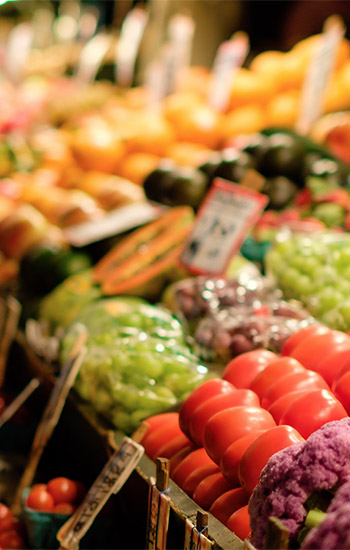Our story
About us
Plutus Racine Pvt. Ltd. works to build sustainable agricultural exports and strengthen intraregional trade. In 2012 alone, ITC assisted farmers, communities and agri-food enterprises in 23 least developed countries (LDCs) and small island developing states (SIDS), increasing their trade and income-generating capacity by 10–20% on average. ITC’s interventions are based on market demand, ensuring sustainability: we assist enterprises in meeting market needs, upgrading value chains and facilitating the creation of linkages between sellers and buyers.
Why Choose Us
As a global food & agribusiness, Plutus Racine Pvt. Ltd. views it as its responsibility to help find the required sustainable solutions. These principles can play a key role in making food & agribusiness chains more sustainable and contributing to food security.
Food safety and Food security
The first priority of food & agribusiness chains is to feed the world at a reasonable price with products that are not harmful to the health of people and animals.
Using natural resources responsibly.
In order to ensure the continuity of food production, issues such as soil degradation and erosion and soil and surface water pollution must be prevented.

Treating animals responsibly
The treatment of animals by cattle farmers, fish farmers, cattle dealers and cattle transporters must comply with the prevailing legal and ethical standards in society.
Promoting social welfare
The food & agribusiness chains can only be sustainable when the social welfare and environment of the people working within these chains are protected.
Our Services
Do you wish you had more free time? We can make it happen!
Fruits and vegetables
Plutus Racine Pvt. Ltd. aims to improve the quality and quantity of fruits and vegetables exported by developing countries. To do so, we create strategic development plans outlining the status of the fruit and vegetable market in a country and explain how to overcome the challenges to reach a target exporting goal.
Coffee
Plutus Racine's The Coffee Exporter’s Guide is the world’s most extensive source of information on all aspects of international trade of coffee. Topics include production and sales statistics, contracts, logistics, electronic trade, futures, hedging, quality issues, certifications, social aspects, environment and climate change.
Cotton
The cotton sector provides income for millions of people in Africa alone, especially those living in rural areas, and is an important source of foreign-exchange earnings. Plutus Racine’s efforts in this sector are aimed at making Africa a stronger player in the international cotton trade.
Fibres
Jute and other hard fibres could stage a comeback in world markets, in response to the increase in oil prices, which hurts the competitiveness of synthetic jute substitutes. However, in order to take advantage of this opportunity, producers and processers need to convert to higher-quality fibre and increase their productivity.
Spices
The world market for imported spices and culinary herbs is large, valued at around US$ 4 billion. Least developed countries such as Comoros, Madagascar and the United Republic of Tanzania earn a substantial part of their foreign exchange from spice exports.
Medicinal plants
Medicinal plants and extracts are increasingly important export products for many developing countries. As populations age and consumers’ preference for natural health products increases, medicinal plants present a niche that exporters in many least developed countries are looking to develop for sustainable production and export trade.










